
Leadership is more than a title. The characteristics of a good leader are a blend of qualities that inspire teams and drive companies forward. In today’s digital era understanding what makes a good leader is crucial, whether you’re aspiring to a leadership role yourself or trying to identify these qualities in candidates.
Today, effective leadership goes beyond traditional management tactics and experience. The modern workforce prioritises flexibility and purpose. Agile and composable methodologies, and flatter business structures, have grown in popularity. Perhaps more than ever before, a leader’s ability to listen and leverage the talent at every level of their team from the hiring process and beyond provides a crucial competitive edge.
If you are considering your next executive hire, getting that hire right is important. Simply put, the wrong leader costs businesses. They impact morale, productivity, and progress. In their Global State of Work Report 2023 Gallup estimated that low engagement costs the global economy US$8.8 trillion and accounts for 9% of global GDP. Leaders directly impact workplace engagement, and the right leader has the power to help their employees thrive at work.
Our ultimate guide to what makes a good leader today explores what makes a good leader ‘good’. We focus on what qualities inspire teams and drive companies forward in the digital era, and share expert tips to keep in mind when sourcing and hiring leadership roles for your business.

Embracing flexibility and meaning in leadership
Nearly 1 in 2 job seekers are looking for positions with more flexibility. Modern employees value work environments where flexibility isn’t just a perk but a fundamental aspect of the corporate culture.
The pros and cons of remote, hybrid or fully on-site work have been widely debated. However Gallup analysis finds that engagement has 3.8 times as much influence on employee stress as work location. What this means is that how involved and motivated an employee is matters more than where they sit.
“No location can fix poor management, and the office alone has no magic to create a great organisational culture.“
Gallup Global State of Work Report 2023
With this in mind, good leaders are those that:
- Foster engagement:
Good leaders actively engage with their teams, creating an environment where every member feels involved and motivated to contribute. - Encourage open dialogue:
A great leader can listen attentively, ask meaningful questions, and understand diverse viewpoints, fostering a culture of open and honest communication. - Empower their teams:
Empowerment is a key trait of effective leadership. It involves entrusting employees with responsibilities and autonomy, allowing them to explore their full potential and have a significant voice in decision-making processes. - Value employee perspectives:
Leaders who value and consider their employees’ perspectives in decision-making processes often see higher levels of commitment and productivity in their teams, and can adapt to change faster and more effectively.
The 9 most important leadership qualities for your next hire
Effective leadership isn’t just about managing tasks or overseeing projects; it’s about embodying qualities that inspire, guide, and elevate those around you. This is particularly true in the dynamic and fast-paced digital industries Salt specialises in – where embracing change and adapting quickly are crucial to a competitive business.
Leadership involves a blend of various qualities, each crucial for the success of a team and an organisation. Whether you’re looking to hire an aspiring leader or a seasoned manager, understanding and nurturing these essential leadership qualities can profoundly impact your team’s success and your organisation’s growth. As expert digital recruiters at Salt, we understand the importance of these attributes and strive to find candidates who embody the qualities of a leader, helping businesses thrive with the right leadership.
1. Vision
An effective leader possesses a clear and distinct vision for their team and the company. The ability to see the end goal and chart a clear path to get there is crucial. By communicating this vision consistently, clearly and simply, they will align everyone’s efforts towards common objectives, ensuring the team moves in the same direction.

How to source a leadership candidate with vision
What’s their track record like? Try to look beyond the reports of success to the strategy at work. Does their approach to planning for the future align with yours? Have they led transformative initiatives? True visionaries are innovative. They’re not defined solely by their victories, but also by the lessons they learn from setbacks, so pay attention to how they navigate failures as well as successes.
Top interview question to identify a visionary leader
With the future of the industry in mind, what is the one thing you’d most want to achieve in this leadership role in 5 years and why is that your priority?
2. Integrity
Integrity, the quality of possessing strong moral values and ethical principles, is at the heart of strong leadership. When you act with integrity, you earn the trust and respect of your team. Acting with integrity means owning mistakes, sharing credit where credit is due, openly communicating and making decisions transparently. Actions can drive a workplace grounded in ethical practices and honesty, setting a standard for everyone to follow. This approach fosters a culture of reliability and moral excellence.
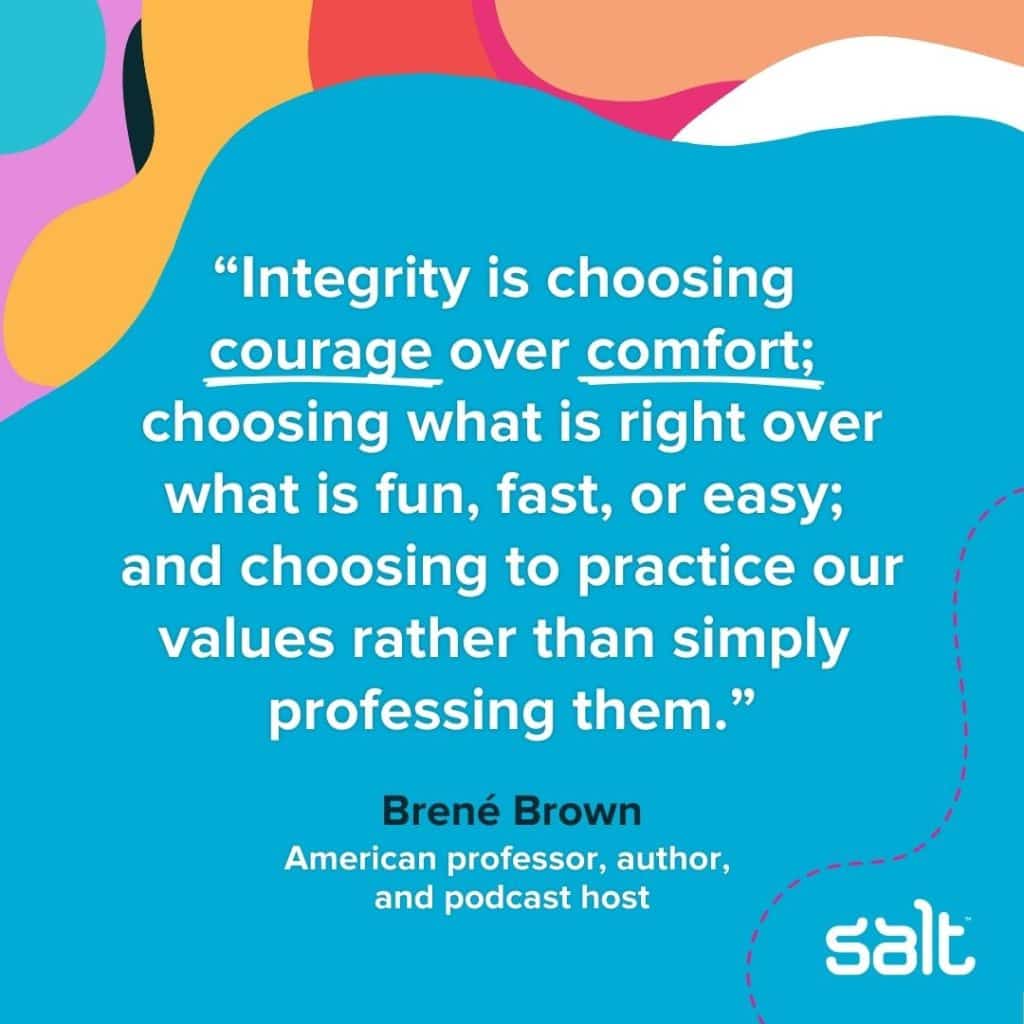
How to source a leadership candidate with integrity
Look at their career history and see how their ethics has shaped their decision making: from where they’ve worked to what achievements they’ve chosen to highlight. What are their values and do they align with yours? Ask for references from stakeholders, colleagues and subordinates. A leader with integrity is one who can own their own mistakes,
Top interview question to identify a leader with integrity
How do you plan to gain the respect of your team? Reference what you’ve done in the past, and why it did or didn’t work.
3. Humility
Great leadership is characterised by humility. This is the ability to recognise your strengths, limitations and accomplishments, without arrogance or prejudice. A leader with humility prioritise the needs of their team – from their growth to their wellbeing. They’re self-aware, able to learn from others, and they give credit where credit is due. Humility fosters a collaborative environment where each team member’s contribution is valued and respected, creating a culture where ideas flourish without fear of ego or competition.
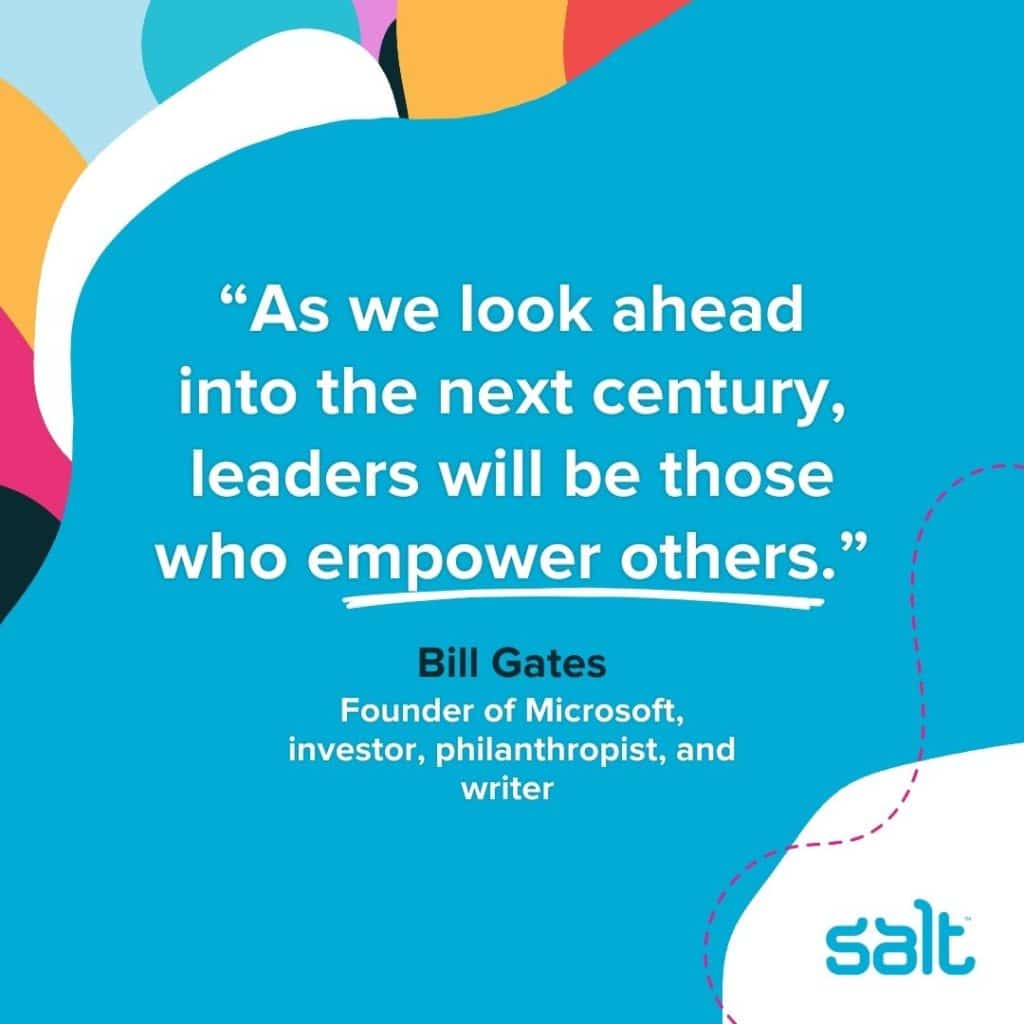
How to source a leadership candidate with humility
On their profile or in their application, look at the way they talk about achievements in past organisations. Do they share the credit and mention others involved? References from others on also speak volumes about this leadership quality. What subordinates and colleagues have to say about a candidate will paint a clear picture of the relationships they have with those around them.
Top interview question to identify a leader with humility
Which of your weaknesses do you think most negatively impacts those around you and how do you try to limit it’s impact?
4. Inspiration
The ability to inspire and motivate is a defining trait of successful leadership. For example, energising teams during challenging times by inspiring enthusiasm and confidence. Inspiring leadership qualities could include encouraging open dialogue in your team, celebrating the small wins and leading by example. Being able to keep morale high and guide teams through obstacles with a positive attitude is key to success and navigating change effectively.
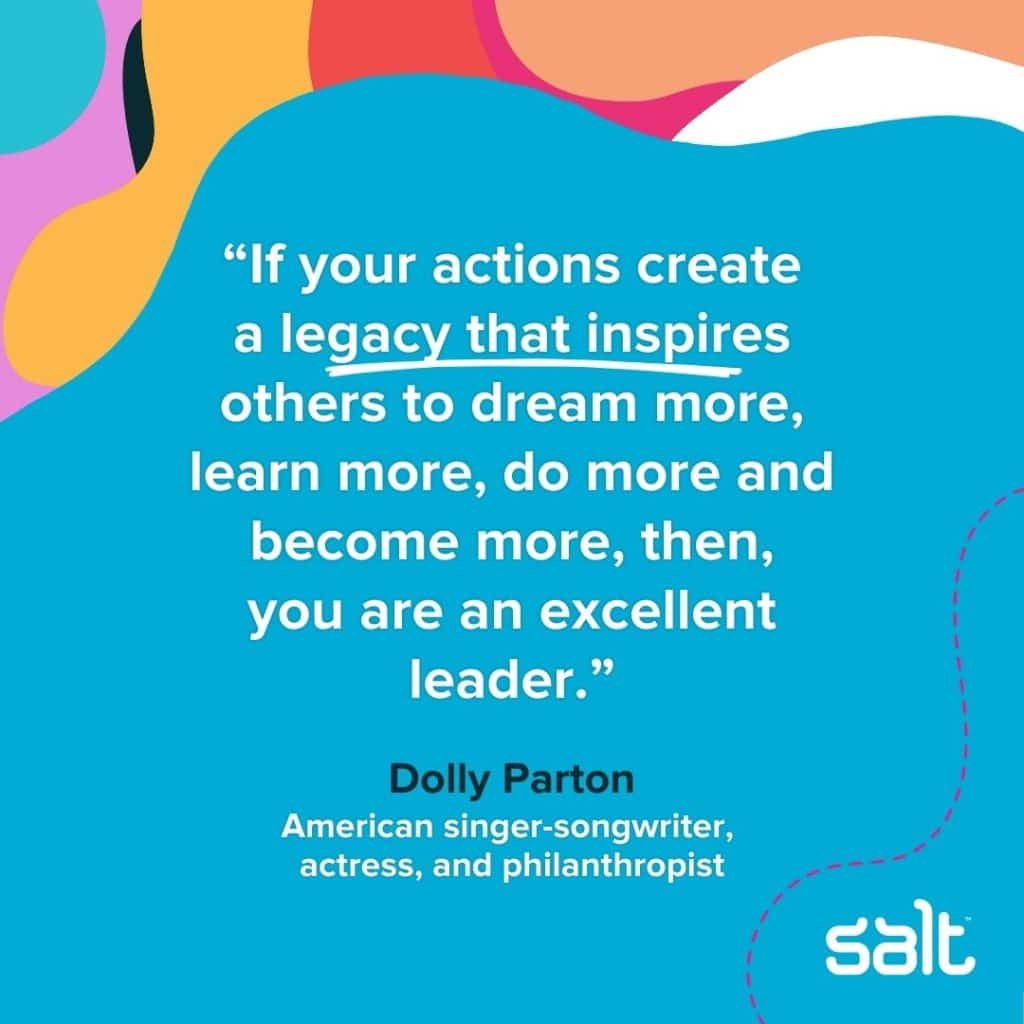
How to source an inspiring leadership candidate
Look at a candidate’s past experience – how long were they leading the team in their last place of work? If they have a public presence, such as content on professional forums or social media, consider their ability on their own platforms to inspire others. This could be work related, or this could be their promotion of causes or personal projects. Consider including assessments and simulations in interviews to assess their strategic thinking and emotional intelligence, and test how they adapt their approach to persuasion in different contexts.
Top interview question to identify an inspiring leader
Being specific about your past experiences, how have you successfully fostered a sense of purpose and passion within your team or teams?
5. Empathy
Empathy is a cornerstone of impactful leadership. Leaders show empathy by understanding their team’s emotions and perspectives. This builds deep-rooted loyalty and trust, as team members feel genuinely cared for and valued beyond their professional contributions. Active listening skills and self-awareness are key in practicing empathy towards others.
![What makes a good leader in today's digital era 7 Quote about empathetic leaders: “Measure your impact in humanity, not in the likes, but the lives you touch; not in popularity, but in the people you serve. [...] People will try to convince you that you should keep your empathy out of your career. Don’t accept this false premise.” Tim Cook, CEO of Apple Inc.](https://fra1.digitaloceanspaces.com/salt-media/2024/06/Empathetic-leader-Tim-Cook-1024x1024.jpg)
How to source a leadership candidate with empathy
Look for a history of collaborative work, or participation in volunteering and personal projects with others, as this is a good indicator of a candidate with empathy and collaboration skills. Behavioral interview questions will help you assess their capacity for empathy in an interview. Ask about how they manage stress and resolve conflicts, both of which make practicing empathy challenging.
Top interview question to identify an empathetic leader
Talk us through a time someone you were managing made a mistake that set you back. What happened, and how did you respond?
6. Empowerment
An empowering leader is able to create an environment for their team or teams where autonomy is encouraged and upskilling is prioritised. This in turn leads to innovation and creating a culture of continuous learning, as team members feel trusted to take the initiative and make decisions, fostering a sense of ownership and driving individuals to contribute their best.
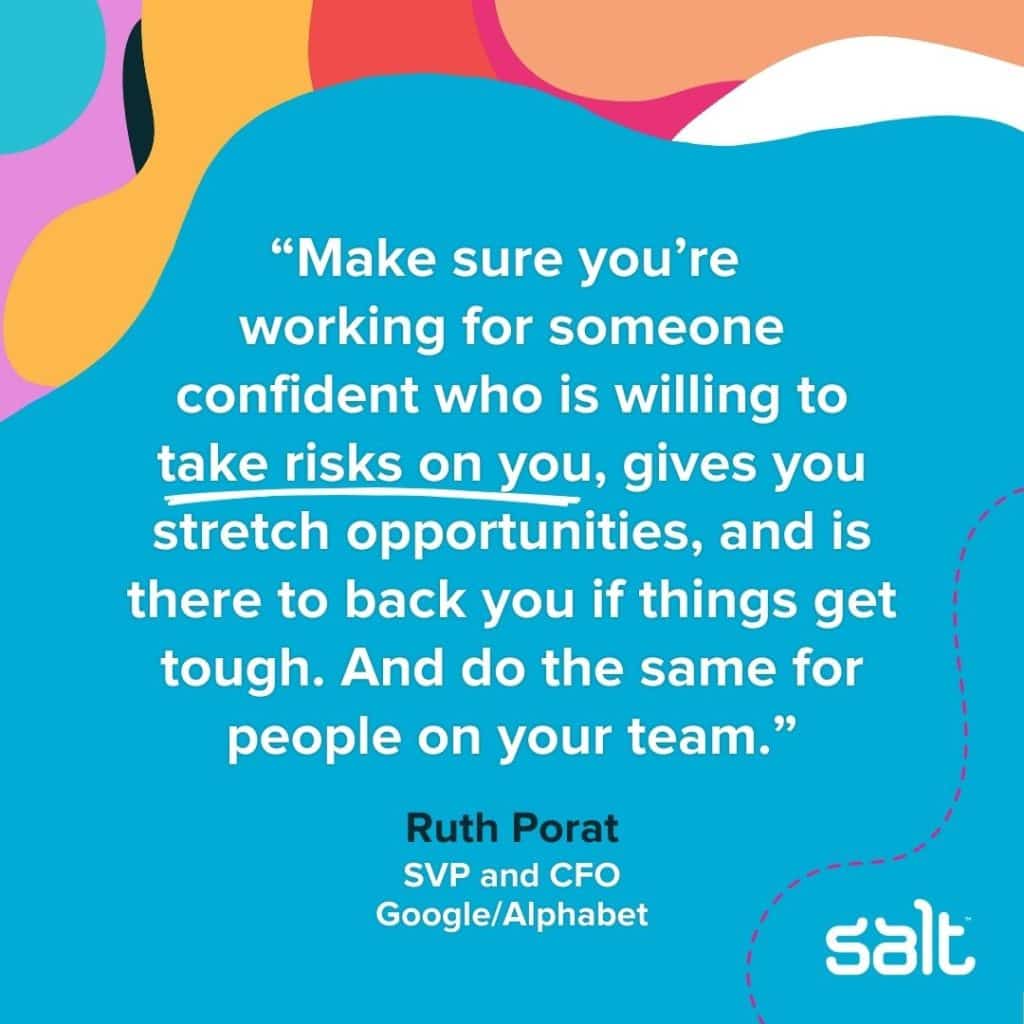
How to evaluate an empowering leadership candidate?
Reflect on the challenges your organisation faces – what qualities does your empowering leader need to overcome with their team? Use this list to write a clear set of criteria based on those desired qualities, which you can score each applicant against in interview. Dig into how applicants’ have fostered growth and empowered teams previously, with a focus on strategy and approach as well as results.
Top interview question to identify an empowering leader
How do you support your team in taking calculated risks?
7. Passion
Passion as a leader is infectious. It’s the fuel that drives teams to engage with their work deeply. Inspiring those around you to approach tasks with the same level of energy and commitment with a well-rounded approach. It’s an important balance between passion and empathy so leadership roles don’t run the risk of overworking their teams or failing to understand their limitations or challenges.
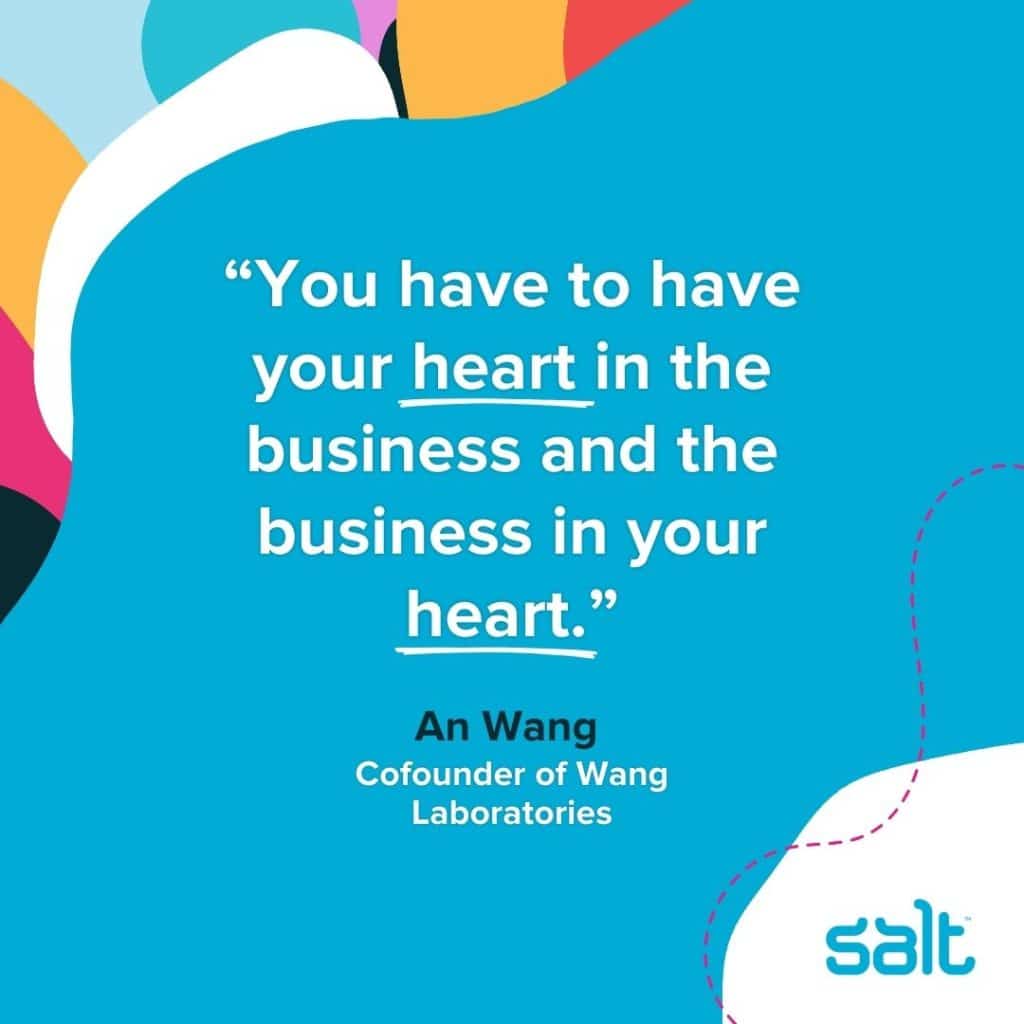
How to source a leadership candidate with passion
Look for passion in how candidates’ discuss past initiatives and projects on their profiles, or gage this in their response to interview questions about their experiences. Passion looks different to different people – so take a moment to reflect on what that means within your organisational culture and values. We’re often looking for enthusiasm, commitment and a proactive approach to problem solving. After the interview, reflect on how effectively they communicated their passion. Did you feel inspired?
Top interview question to identify an passionate leader
Talk to us about a project your passionate about and why. Depending on your experience, this could be professional or personal.
8. Delegation
Being skilled in the art of delegation is a key leadership quality in any modern workplace. Leaders should know how to allocate tasks efficiently. Micromanaging as a leader runs the risk of stifling creativity and compromising the productivity of your team. Allowing teams to take ownership of projects or tasks by creating clear roles and responsibilities is key to innovation and keeping your people motivated.
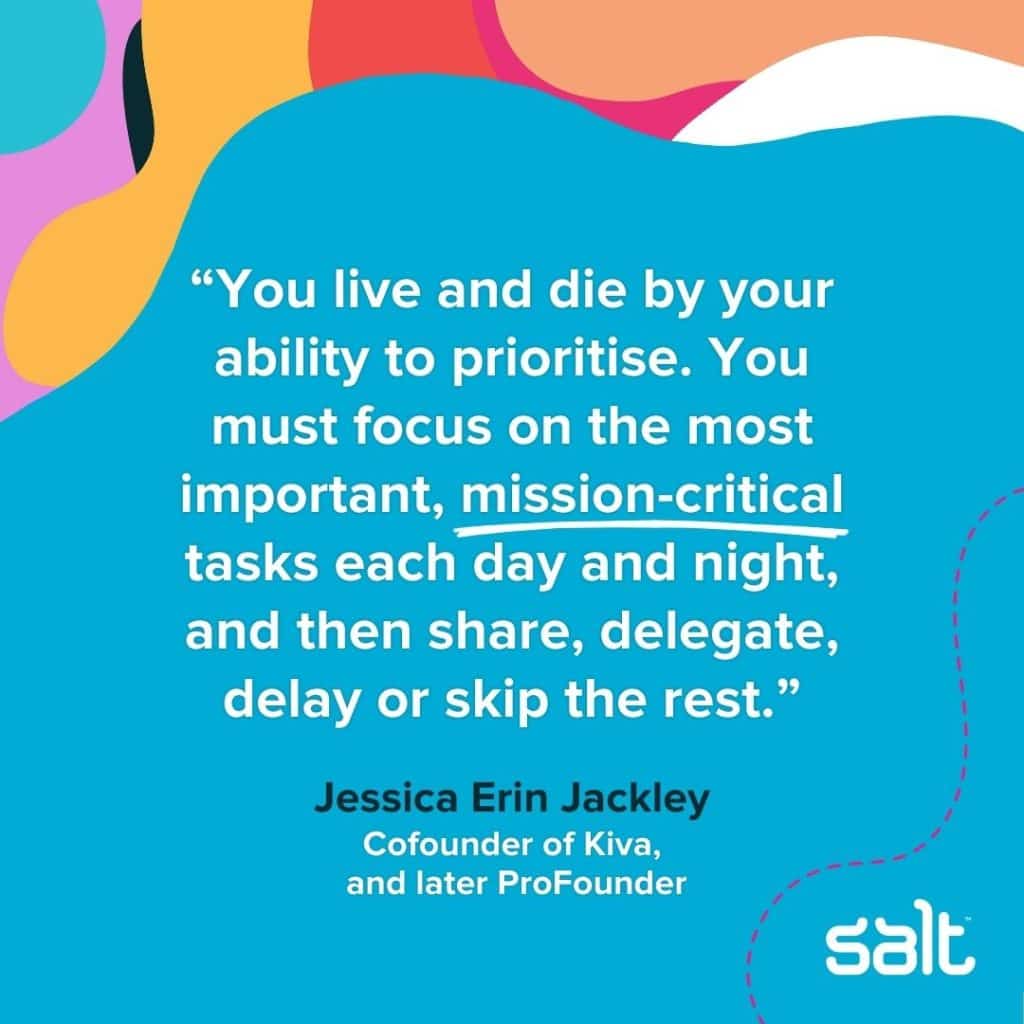
How to source a leadership candidate able to delegate
To find a leader able to delegate, you’re looking for a candidate able to prioritise effectively, communicate tasks and expectations clearly, and who can trust in their team to deliver independently. Delegation goes hand in hand with empowerment, and benefits staff at every level as they’re able to gain more responsibility in their roles, therefore learning new skills and gaining experience.
Top interview question to identify a leader able to delegate
How would you decide what task to hand over to a member of your team when you’re low on time and resource – and what steps would you need to take to feel confident in their ability to deliver?
9. Self-awareness
As a self-aware leader, it’s important to be aware of your own personal strengths, weaknesses, emotions, drives, and importantly, biases. You must consciously evaluate your own traits and behaviours, as well as those of the team you manage. Self-awareness goes hand-in-hand with emotional intelligence (EQ), collaboration and communication. Self-awareness allows senior managers to interrupt bias, manage their own emotions, and continuously grow as both an individual and a leader.
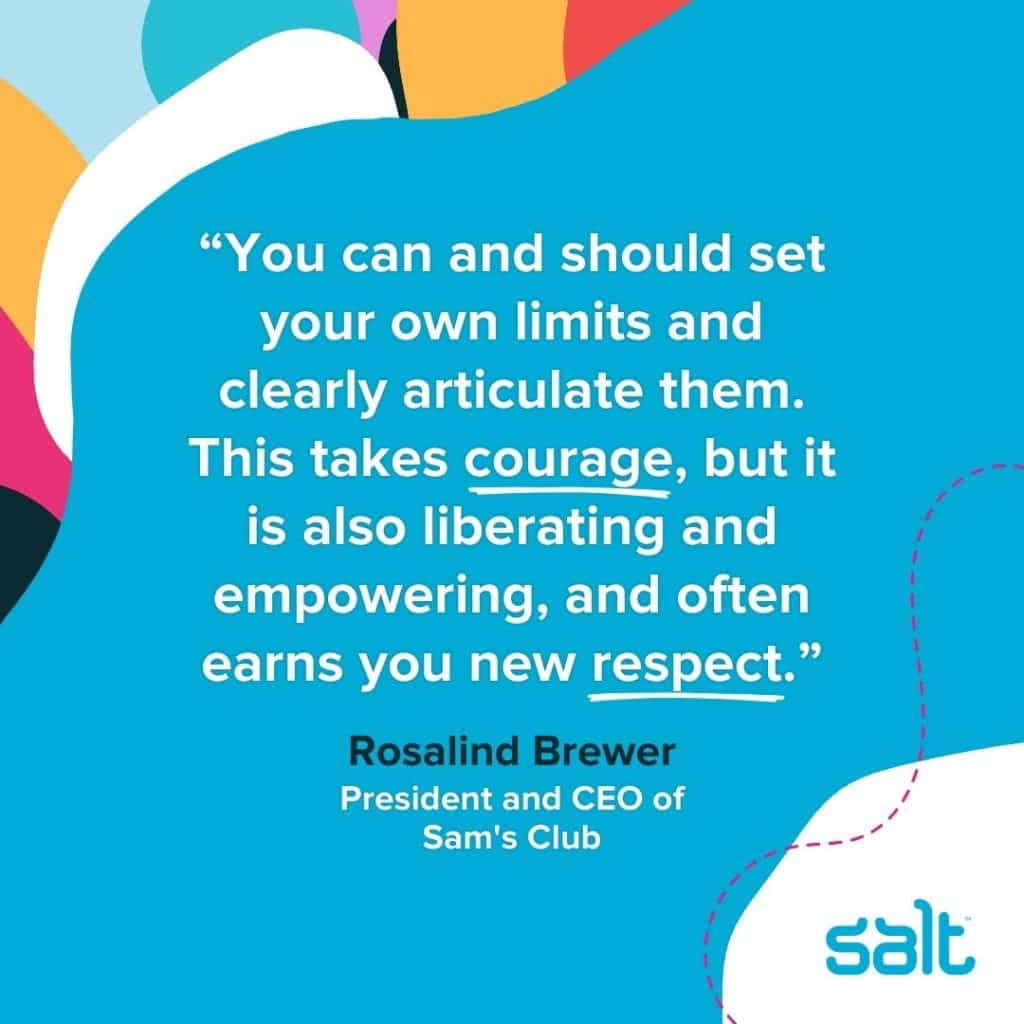
How to source a leadership candidate with self-awareness
A self-aware leader can demonstrate their emotional intelligence in the way they reflect on their workstyle, strengths, weaknesses and past career experiences. Self-awareness isn’t static, so you’re also looking for someone dedicated to continuous personal development, and someone who’s able to learn from feedback or challenges. References from colleagues and subordinates can showcase how self-aware a candidate is in a leadership position, and how that impacted on team dynamics.
Top interview question to identify a self-aware leader
What was a moment of personal failure for you in your career? Why did it happen, and what learning did you take away from it?
Hiring leadership for your business or team
When you’re interviewing potential leaders, often the candidates you’re seeing will have experience, confidence and a strong understanding of the industry you’re in. It can be hard to evaluate their qualities or to compare one amazing leader to another. Working with a recruitment agency through the interview process you will get a full picture of their past experiences and expert advice in the selection process.
Are you looking to step into a leadership role or seek the ideal leader for your digital team? Contact Salt today by selecting your nearest location below. We connect talented individuals with the perfect opportunities and provide expert guidance for both candidates and hiring managers.
Hiring? Salt connects you to outstanding top talent worldwide
If you’re interested in hearing about how Salt’s top talent recruitment experts around the world can help with your hiring right now, get in touch. Click below to contact the closest Salt team to you!
- Australia
- Canada
- Belgium
- Europe
- Hong Kong
- Malaysia
- Middle East and North Africa
- Netherlands
- New Zealand
- Singapore
- South Africa
- United Kingdom
- United States
Keep up with Salt’s top talent job market insights and hiring advice! You can keep in the loop by following us on. LinkedIn, YouTube, Facebook, Instagram, Twitter and Spotify.



